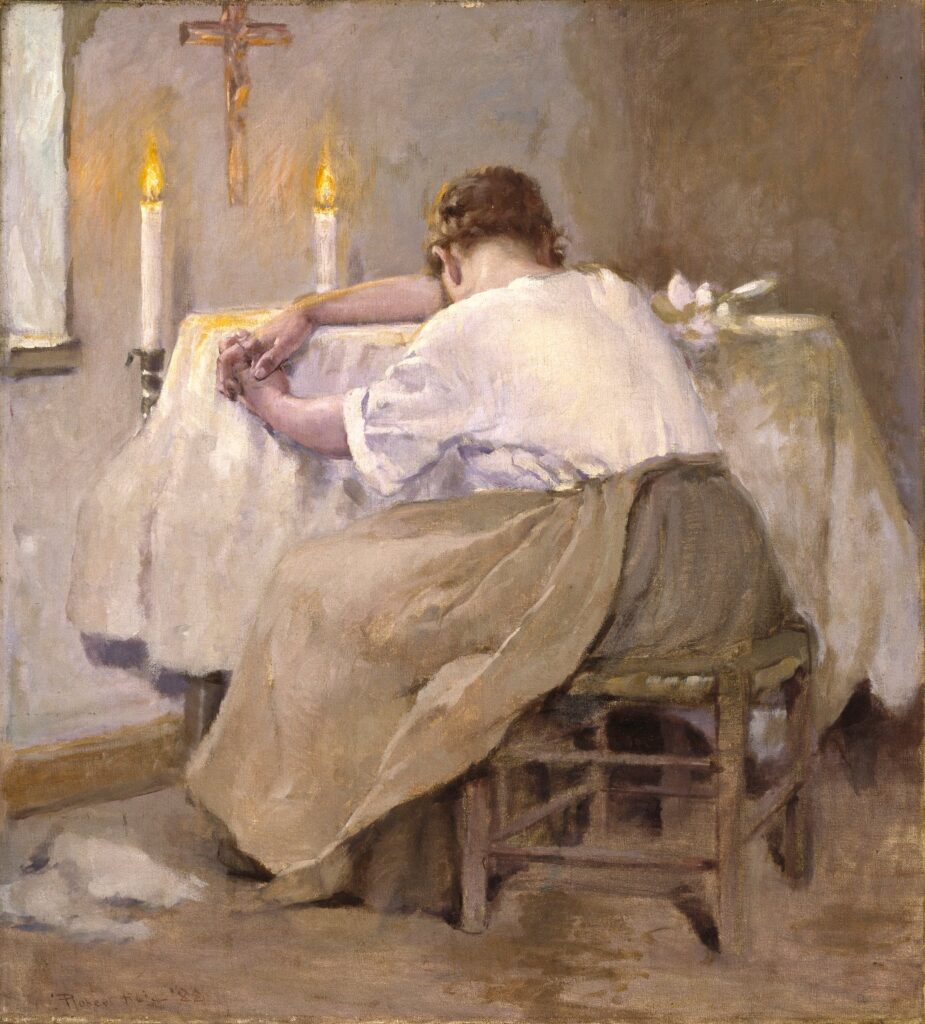Note: If you wish to receive, via e-mail, (1) my weekly newsletter or (2) daily copies of these posts, notify me at [email protected] and indicate which you would like. I promise not to share your e-mail address with anyone. To unsubscribe, send me a follow-up email.
Tuesday
Reader Patrick Logan sent in a moving reply to my recent post on how anti-vaxxers should read 19th century novels to learn why vaccines are such a gift. If we are not constantly faced with childhood death as past ages were, its because of scientific advances in combatting disease.
Citing statistics, while important, is not enough. To report that Robert Kennedy, Jr.’s anti-vax organization was responsible for the recent measles deaths of over 50 toddlers and children in Samoa, while horrifying, can lack the bite of a poem describing the upheaval a child’s death causes in a family. Patrick suggests we all read Robert Frost’s “Home Burial.”
Patrick reports on a recent visit to the Wolfeboro, NH library where he discovered a book containing gravestone inscriptions from the town’s many cemeteries. There he learns about the Rendall family. Miles Rendall lost his father when he was 5 (in 1824) and then later, after marrying Adeline, he saw four of their children die (in 1864), followed two weeks later by Adeline’s own death. And then two more died. Here’s the list:
Edwin, November 12 – age 7
Elzira, November 15 – age 5
Helen, November 18 – age 9
Arietta, November 22 – age 10
Within two weeks of Adeline’s death, two more children died:
Nathan, November 29 – age 2
James, December 6 – age 1
Miles later married Mary, who died in 1876.
Before Mary’s death, she and Miles lost both of their children:
Albert, 1870 – age 6 months
Oran, 1867 – age unknown
Patrick says that these family tragedies hit home because Miles lived on Cotton Valley Road, just a few miles from where his own father’s family lived for more than two hundred years (in Ossipee). Patrick asks,
How does anyone make sense of such loss? I cannot imagine the pain of losing a child, and I’m reluctant to send these lines from perhaps the saddest poem in the English language, Frost’s Home Burial. I’m overwhelmed by Amy’s ‘Don’t, don’t, don’t, don’t,’ and her husband’s plea, ‘Help me, then.’ There is so much emotion here.
In the poem, Amy is lashing out at her husband for the nonchalant way (or so she perceives it) that he has buried their child. He meanwhile is desperately trying to figure out how to pull her out of a depression that causes her to shy away from him in horror. The following conversation begins after he realizes that she has been looking through a window that frames the family cemetery, including their child’s mound:
‘There are three stones of slate and one of marble,
Broad-shouldered little slabs there in the sunlight
On the sidehill. We haven’t to mind those.
But I understand: it is not the stones,
But the child’s mound—’
‘Don’t, don’t, don’t, don’t,’ she cried.
She withdrew shrinking from beneath his arm
That rested on the banister, and slid downstairs;
And turned on him with such a daunting look,
He said twice over before he knew himself:
‘Can’t a man speak of his own child he’s lost?’
‘Not you! Oh, where’s my hat? Oh, I don’t need it!
I must get out of here. I must get air.
I don’t know rightly whether any man can.’
‘Amy! Don’t go to someone else this time.
Listen to me. I won’t come down the stairs.’
He sat and fixed his chin between his fists.
‘There’s something I should like to ask you, dear.’
‘You don’t know how to ask it.’
‘Help me, then.’
In some ways, this is a “women are from Venus, men are from Mars” situation, where each fails to understand the way the other is processing grief. The poem may be autobiographical since Frost wrote it in response to the death of his son Elliott of cholera at the age of four. Frost and Elinor would later lose another child the day after she was born, as well as a 29-year-old daughter due to complications from childbirth. Modern science could well have made a difference in all three cases.
Patrick’s point, in citing the poem, is that each child’s death is an emotional earthquake in the lives of their families—which I, having lost a 21-year-old child, can confirm. That anti-vaxxers are willing to unleash this devastation upon the world should confound us all. They are like spoiled rich kids who, having grown up in a protected environment, think hunger and poverty are no big deal.
Among explanations for such behavior, I like that of Atlantic writer and former Republican Tom Nichols. Because technology (including medical technology) has made our lives easier, he says, we have become bored. We therefore look to “political entrepreneurs” to spice things up with performative politics.
The performances are paying off handsomely for many of these entrepreneurs, including Kennedy. Meanwhile, children die.
